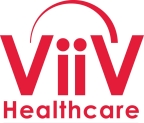ViiV Healthcare, the global specialist HIV company majority owned by GlaxoSmithKline, with Pfizer and Shionogi as shareholders, announced an exclusive collaboration and license agreement with Shionogi & Co. Ltd. for S-365598, a third-generation investigational integrase strand transfer inhibitor with potential for use in ultra long-acting HIV regimens.
S-365598 aims to build on the success of dolutegravir and cabotegravir with potential to anchor the next generation of VHC’s future pipeline of innovative long-acting therapies for HIV
LONDON--(BUSINESS WIRE)-- ViiV Healthcare, the global specialist HIV company majority owned by GlaxoSmithKline (GSK), with Pfizer and Shionogi as shareholders, today announced an exclusive collaboration and license agreement with Shionogi & Co. Ltd. (Shionogi) for S-365598, a third-generation investigational integrase strand transfer inhibitor (INSTI) with potential for use in ultra long-acting HIV regimens (regimens with dosing intervals of three months or longer).
Under the terms of the agreement, ViiV Healthcare will make an upfront payment of £20 million to Shionogi, a £15 million payment for the achievement of a clinical development milestone and royalties on net sales. The royalty levels are aligned with those in Shionogi’s existing integrase inhibitor agreements with ViiV Healthcare. Shionogi will contribute to development costs up to an annual maximum.
Kimberly Smith, M.D., MPH, Head of Research & Development at ViiV Healthcare said: “Our 20-year relationship with Shionogi has been incredibly successful, producing what are arguably two of the most important HIV medicines of the last decade. Dolutegravir is now taken by 17 million people globally, and cabotegravir has allowed us to develop the first long-acting regimen for treatment. With today’s announcement about the in-licensing of a third integrase inhibitor from Shionogi, we will continue this collaboration and explore the potential of S-365598 to anchor ViiV Healthcare’s pipeline beyond 2030.”
John Keller, Ph.D., Senior Executive Officer, Senior Vice President, Corporate Strategy Division at Shionogi said: “Many people living with HIV and those vulnerable to acquiring HIV have concerns about daily oral medication, such as the daily reminder of living with HIV, HIV status disclosure and consistency of adherence. Long-acting HIV medications have the potential to bring considerable benefit to these individuals. We are looking forward to continuing to work with ViiV to further advance this innovative approach to HIV therapies.”
Preliminary data has shown that S-365598 has a high genetic barrier and a resistance profile that is distinct from that of dolutegravir and cabotegravir. Its long half-life may support its development as an ultra-long medicine that could be delivered with infrequent dosing of every three months or longer.
Preclinical studies are underway. ViiV Healthcare and Shionogi intend to initiate first time in human studies with S-365598 by 2023.
Important Safety Information for Cabenuva (cabotegravir 200 mg/mL; rilpivirine 300 mg/mL) extended release injectable suspensions
Cabenuva is indicated as a complete regimen for the treatment of human immunodeficiency virus type 1 (HIV-1) infection in adults to replace the current antiretroviral regimen in those who are virologically suppressed (HIV-1 RNA less than 50 copies per mL) on a stable antiretroviral regimen with no history of treatment failure and with no known or suspected resistance to either cabotegravir or rilpivirine.
CONTRAINDICATIONS
- Do not use Cabenuva in patients with previous hypersensitivity reaction to cabotegravir or rilpivirine.
- Do not use Cabenuva in patients receiving carbamazepine, oxcarbazepine, phenobarbital, phenytoin, rifabutin, rifampin, rifapentine, systemic dexamethasone (>1 dose), and St John’s wort.
WARNINGS AND PRECAUTIONS
Hypersensitivity Reactions:
- Hypersensitivity reactions, including cases of Drug Reaction with Eosinophilia and Systemic Symptoms (DRESS), have been reported during postmarketing experience with rilpivirine-containing regimens. While some skin reactions were accompanied by constitutional symptoms such as fever, other skin reactions were associated with organ dysfunctions, including elevations in hepatic serum biochemistries.
- Serious or severe hypersensitivity reactions have been reported in association with other integrase inhibitors and could occur with Cabenuva.
- Discontinue Cabenuva immediately if signs or symptoms of hypersensitivity reactions develop. Clinical status, including liver transaminases, should be monitored and appropriate therapy initiated. Prescribe the oral lead-in prior to administration of Cabenuva to help identify patients who may be at risk of a hypersensitivity reaction.
Post-Injection Reactions:
- Serious post-injection reactions (reported in less than 1% of subjects) were reported within minutes after the injection of rilpivirine, including dyspnea, agitation, abdominal cramping, flushing, sweating, oral numbness, and changes in blood pressure. These events may have been associated with inadvertent (partial) intravenous administration and began to resolve within a few minutes after the injection.
- Carefully follow the Instructions for Use when preparing and administering Cabenuva to avoid accidental intravenous administration. Observe patients briefly (approximately 10 minutes) after the injection. If a post-injection reaction occurs, monitor and treat as clinically indicated.
Hepatotoxicity:
- Hepatotoxicity has been reported in patients receiving cabotegravir or rilpivirine with or without known pre-existing hepatic disease or identifiable risk factors.
- Patients with underlying liver disease or marked elevations in transaminases prior to treatment may be at increased risk for worsening or development of transaminase elevations.
- Monitoring of liver chemistries is recommended and treatment with Cabenuva should be discontinued if hepatotoxicity is suspected.
Depressive Disorders:
- Depressive disorders (including depressed mood, depression, major depression, mood altered, mood swings, dysphoria, negative thoughts, suicidal ideation or attempt) have been reported with Cabenuva or the individual products.
- Promptly evaluate patients with depressive symptoms.
Risk of Adverse Reactions or Loss of Virologic Response Due to Drug Interactions:
- The concomitant use of Cabenuva and other drugs may result in known or potentially significant drug interactions (see Contraindications and Drug Interactions).
- Rilpivirine doses 3 and 12 times higher than the recommended oral dosage can prolong the QTc interval. Cabenuva should be used with caution in combination with drugs with a known risk of Torsade de Pointes.
Long-Acting Properties and Potential Associated Risks with Cabenuva:
- Residual concentrations of cabotegravir and rilpivirine may remain in the systemic circulation of patients for prolonged periods (up to 12 months or longer). Select appropriate patients who agree to the required monthly injection dosing schedule because non-adherence to monthly injections or missed doses could lead to loss of virologic response and development of resistance.
- To minimize the potential risk of developing viral resistance, it is essential to initiate an alternative, fully suppressive antiretroviral regimen no later than 1 month after the final injection doses of Cabenuva. If virologic failure is suspected, switch the patient to an alternative regimen as soon as possible.
ADVERSE REACTIONS
- The most common adverse reactions (incidence ≥2%, all grades) with Cabenuva were injection site reactions, pyrexia, fatigue, headache, musculoskeletal pain, nausea, sleep disorders, dizziness, and rash.
DRUG INTERACTIONS
- Refer to the applicable full Prescribing Information for important drug interactions with Cabenuva, Vocabria, or rilpivirine.
- Because Cabenuva is a complete regimen, coadministration with other antiretroviral medications for the treatment of HIV-1 infection is not recommended.
- Drugs that are strong inducers of UGT1A1 or 1A9 are expected to decrease the plasma concentrations of cabotegravir. Drugs that induce or inhibit CYP3A may affect the plasma concentrations of rilpivirine.
- Cabenuva should be used with caution in combination with drugs with a known risk of Torsade de Pointes.
USE IN SPECIFIC POPULATIONS
- Pregnancy: There are insufficient human data on the use of Cabenuva during pregnancy to adequately assess a drug-associated risk for birth defects and miscarriage. Discuss the benefit-risk of using Cabenuva during pregnancy and conception and consider that cabotegravir and rilpivirine are detected in systemic circulation for up to 12 months or longer after discontinuing injections of Cabenuva. An Antiretroviral Pregnancy Registry has been established.
- Lactation: The CDC recommends that HIV 1−infected mothers in the United States not breastfeed their infants to avoid risking postnatal transmission of HIV-1 infection. Breastfeeding is also not recommended due to the potential for developing viral resistance in HIV-positive infants, adverse reactions in a breastfed infant, and detectable cabotegravir and rilpivirine concentrations in systemic circulation for up to 12 months or longer after discontinuing injections of Cabenuva.
Please see full Prescribing Information for Cabenuva.
About Shionogi
Shionogi is committed to “Protect people worldwide from the threat of infectious diseases” as our key focus. Leveraging the key strengths in our integrated value chain from R&D to manufacturing and marketing, we continue to engage in R&D into therapeutic agents for a wide range of infectious diseases, such as “world’s three major infectious diseases” including HIV, “viral infections” including the novel coronavirus (SARS-CoV-2) and influenza, and “severe infectious diseases” including AMR. We are not only pursuing the research and development of therapeutics, but are also working towards total care for infectious diseases, through awareness building, epidemic monitoring, prevention, diagnosis, and addressing exacerbations, as well as the treating the infection itself. We also aim to both solve social issues related to infectious disease and establish a sustainable business model to fight infectious disease as a leading company.
For more information on Shionogi & Co., Ltd., visit https://www.shionogi.com/global/en/.
About ViiV Healthcare
ViiV Healthcare is a global specialist HIV company established in November 2009 by GlaxoSmithKline (LSE: GSK) and Pfizer (NYSE: PFE) dedicated to delivering advances in treatment and care for people living with HIV and for people who are at risk of becoming infected with HIV. Shionogi joined as a shareholder in October 2012. The company’s aim is to take a deeper and broader interest in HIV/AIDS than any company has done before and take a new approach to deliver effective and innovative medicines for HIV treatment and prevention, as well as support communities affected by HIV. For more information on the company, its management, portfolio, pipeline and commitment, please visit www.viivhealthcare.com.
About GSK
GSK is a science-led global healthcare company. For further information please visit www.gsk.com/about-us.
Cautionary statement regarding forward-looking statements
GSK cautions investors that any forward-looking statements or projections made by GSK, including those made in this announcement, are subject to risks and uncertainties that may cause actual results to differ materially from those projected. Such factors include, but are not limited to, those described in the Company’s Annual Report on Form 20-F for 2020, GSK’s Q2 Results and any impacts of the COVID-19 pandemic.
Registered in England & Wales:
| GSK PLC | ViiV Healthcare Limited |
| No. 3888792 | No. 06876960 |
| Registered Office: | |
| 980 Great West Road | |
| Brentford, Middlesex | |
| TW8 9GS |
View source version on businesswire.com: https://www.businesswire.com/news/home/20210928005570/en/
ViiV Healthcare
Media enquiries:
Melinda Stubbee +1 919 491 0831 (North Carolina)
Catherine Hartley +44 (0) 7909 2403 (London)
GSK enquiries:
Media enquiries:
Tim Foley +44 (0) 20 8047 5502 (London)
Kristen Neese +1 804 217 8147 (Philadelphia)
Kathleen Quinn +1 202 603 5003 (Washington DC)
Analyst/Investor enquiries:
James Dodwell +44 (0) 20 8047 2406 (London)
Mick Readey +44 (0) 7990 339653 (London)
Jeff McLaughlin +1 215 751 7002 (Philadelphia)
Frannie DeFranco +1 215 751 4855 (Philadelphia)
Shionogi enquiries:
Media/Analyst/Investor enquiries:
Corporate Communications:
SHIONOGI Website Inquiry Form: https://www.shionogi.com/global/en/contact.html (Japan)
Source: ViiV Healthcare
View this news release online at:
http://www.businesswire.com/news/home/20210928005570/en






